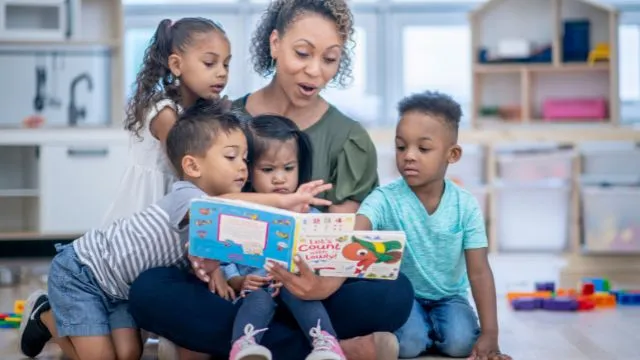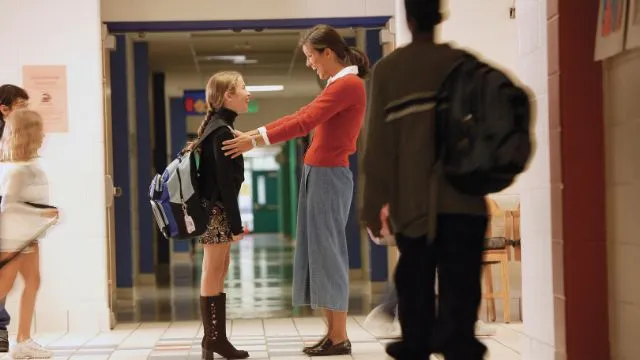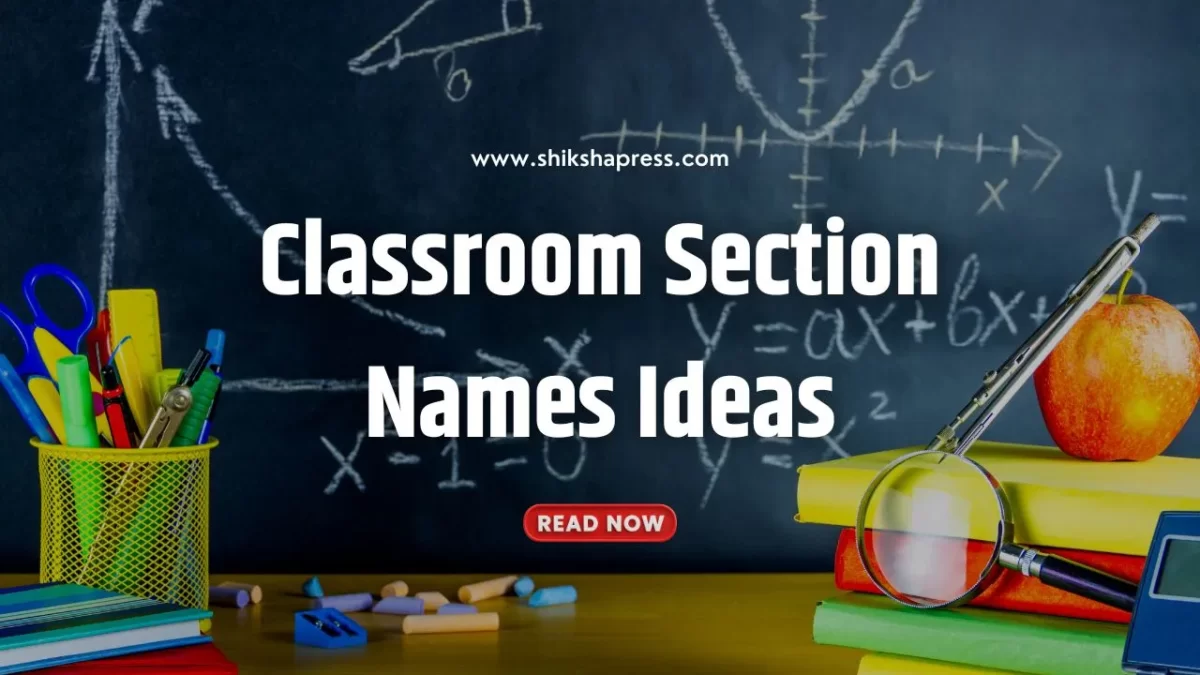How to Manage a Difficult Classroom?
Best Strategies For Dealing With ‘Difficult’ Students [Tips & Techniques]
In the battlefield of education, difficult classrooms can sometimes feel like uphill struggles. But with the right strategies – setting clear expectations, proactive planning, addressing issues directly, and fostering a positive learning environment – educators can turn these challenges into opportunities for growth and learning.
A difficult classroom is not a dead-end, but rather a turning point toward a more effective, inclusive, and successful educational experience.
Dealing with Difficult Students – Classroom Management Tips for Teachers
As educators, we often find ourselves facing challenging classrooms – spaces where disruption, disengagement, or discord seem to reign. Managing such classrooms can be a daunting task, but with the right strategies, it is far from impossible.
Ask yourself: Have you encountered a difficult classroom situation before? Share your experiences in the comments.
What is a Difficult Classroom?
A difficult classroom typically features disruptive behavior, lack of focus, low academic achievement, and a tense atmosphere. These issues might stem from a single student, a group of students, or the class as a whole, and they make teaching and learning an uphill struggle.
Tips for Teachers
- Regularly assess the classroom atmosphere for signs of disruption or disengagement.
- Stay proactive in identifying issues before they escalate.
- Remain patient and understanding, acknowledging that every classroom and student is unique.
Causes of a Difficult Classroom
There are numerous potential causes for a difficult classroom. These can range from external factors, such as socio-economic conditions or family troubles affecting student behavior, to internal factors like classroom dynamics, teaching methods, or the subject matter itself. Identifying these causes is the first step toward creating a solution.
Tips for Teachers
- Pay attention to changes in student behavior and academic performance.
- Communicate with parents and guardians regularly.
- Keep up-to-date with any socio-economic or familial issues that may impact your students.
Does your definition of a difficult classroom align with ours? Let us know in the comments.
Effects of a Difficult Classroom
The effects of a difficult classroom extend beyond the immediate challenges of disruption. They can affect academic performance, stifle positive interaction, and create a stressful environment for both teachers and students, impacting the overall learning experience.
Tips for Teachers
- Monitor student progress regularly.
- Maintain a healthy classroom environment by promoting respect and understanding.
- Keep communication open with students, encouraging them to express their feelings and concerns.
How to Manage a Difficult Classroom
To manage a difficult classroom effectively, establishing clear rules and expectations is essential. Consistency in enforcing these rules helps foster a sense of respect and order.
Additionally, incorporating interactive teaching strategies that keep students engaged can also curb disruptive behavior.
Tips for Teachers
- Establish and consistently enforce clear rules and expectations.
- Use engaging, interactive teaching methods.
- Address disruptions promptly and calmly, avoiding an escalation of the situation.
Try implementing these management strategies in your classroom. Report back on your successes and challenges.
How to Prevent a Difficult Classroom
Preventing a difficult classroom situation starts with proactive planning. Designing lessons that cater to different learning styles, establishing a positive rapport with students, and setting clear expectations from day one can help deter many issues.
Regular communication with parents or guardians also plays a key role in prevention.
Tips for Teachers
- Plan your lessons in a way that caters to diverse learning styles.
- Establish a positive rapport with your students from day one.
- Set clear expectations and communicate regularly with parents or guardians.
Are there other preventive measures that have worked for you? Share your strategies to help fellow educators.
How to Deal with Difficult Students
Addressing difficult students requires patience, understanding, and fair treatment. Private discussions about their behavior, understanding their motivations, and suggesting alternative behaviors can often be more effective than punitive measures.
Where necessary, involve guidance counselors or parents to assist in the process.
Tips for Teachers
- Approach difficult students with patience, understanding, and fairness.
- Engage them in private discussions about their behavior.
- Involve guidance counselors, parents, or other support systems when necessary.
Do you have a story about turning a difficult student situation around? Your experience could inspire and assist others.
How to Build a Positive Classroom Climate
A positive classroom climate promotes respect, cooperation, and academic success. Encouraging positive behavior, celebrating achievements, and cultivating an inclusive environment are all key.
Also, teaching social-emotional skills can empower students to manage their behavior and understand others’ perspectives.
Tips for Teachers
- Promote and reward positive behavior.
- Foster inclusivity and respect among students.
- Teach social-emotional skills to help students manage their behavior.
How do you cultivate a positive classroom climate? Share your top tips.
How to Get Support from Colleagues and Administrators
Collaboration is a powerful tool in managing difficult classrooms. Seek advice from experienced colleagues, participate in professional development opportunities, and maintain open lines of communication with school administrators. Their support and insights can be invaluable.
Tips for Teachers
- Don’t hesitate to seek advice from more experienced colleagues.
- Participate in professional development opportunities.
- Keep open lines of communication with school administrators.
What has been your experience in seeking and receiving support from colleagues and administrators? Discuss your experiences.
Conclusion
In conclusion, managing a difficult classroom is no easy task, but it is certainly achievable with the right strategies and support.
It requires patience, consistency, understanding, and effective collaboration. Remember, every challenge presents an opportunity for learning and growth – for both you as an educator and for your students.
- Remember, every challenge is an opportunity for learning and growth.
- Apply the strategies learned consistently.
- Continue to adapt and improve your teaching methods based on your experiences.
What are your key takeaways from this blog post? Comment below and share this post with fellow educators who might find it useful.
Here are some Frequently Asked Questions (FAQs) about classroom management:
What is classroom management?
Classroom management refers to the wide variety of skills and techniques that teachers use to keep students organized, focused, engaged, respectful, and academically productive during class.
How can I improve my classroom management skills?
Improvement can come from professional development courses, seeking advice from experienced colleagues, learning from past experiences, and staying adaptable to the needs of your students.
How can I create a positive classroom environment?
Promoting respect, inclusivity, and cooperation; celebrating student achievements; and teaching social-emotional skills can all contribute to a positive classroom environment.
How can I handle a difficult student?
Approach the student with patience, understanding, and fairness. Seek to understand the cause of the behavior and engage in private discussions about their behavior. Involving guidance counselors or parents may also be necessary.
What role do parents play in classroom management?
Parents can play a supportive role by reinforcing classroom rules and expectations at home, maintaining regular communication with teachers, and partnering with teachers to address any behavioral or academic concerns.
Read These Posts Too:
- 10 Motivation Strategies To Increase Teacher Productivity
- 11 Famous Indian Books and Literature for Youngsters
- Daily Morning Assembly in School
- 9 Highly Effective Ways to Stay Motivated
- How to Handle Parent-Teacher Meetings Effectively?
CBSE Sample Papers | CBSE Circulars | Quizzes | Study Material
Join our Premium Telegram and Whatsapp Channel for More News and Updates.
For the Latest Educational News (CBSE, ICSE, and State Board News) and live news updates, like us on Facebook or follow us on Twitter and Join our Premium Telegram Channel. Read more on Latest Exams & Results News on Shikshapress.com.







Report Card Comments: 50 Need Improvement Remarks for Students